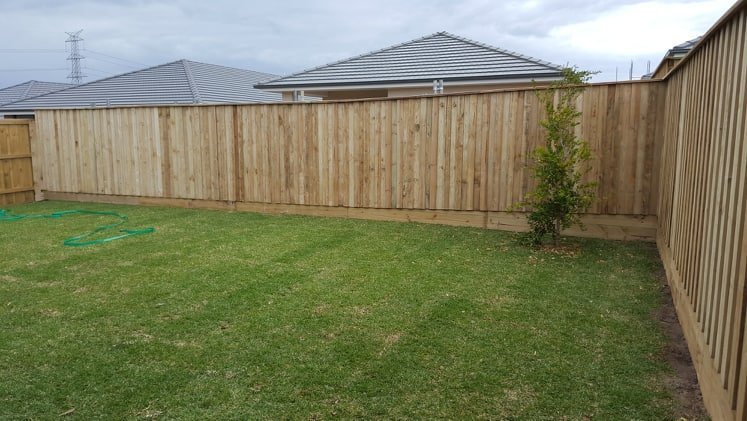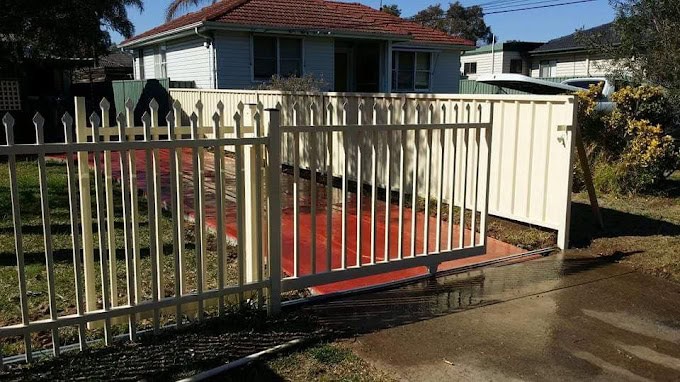
How Seasonal Changes Impact Your Fence and What Professionals Advise
Introduction
Fences are more than just a limit; they're a declaration about your residential or commercial property, a protector of your personal privacy, and a guardian for family pets and children. However what takes place to these structures when the seasons alter? Comprehending how seasonal changes affect your fence is crucial for keeping its stability and visual appeals. This short article explores the impact of various weather conditions on fencing products, offers insights from skilled fence contractors, and offers practical suggestions for property owners. Whether you're in Melbourne or anywhere else, understanding how to look after your fence through seasonal shifts can save time and money down the line.

How Seasonal Changes Affect Your Fence and What Professionals Recommend
When we talk about seasonal changes, we require to consider different elements such as temperature variations, wetness levels, UV direct exposure, and snow accumulation. Each season brings distinct obstacles that can affect the longevity and appearance of your fencing. Let's simplify by season.
Spring: The Awakening of Nature
Spring is synonymous with renewal. As temperatures increase and rains begin to fall, fences might deal with numerous challenges:
Moisture Damage
- Wood Fences: Prolonged direct exposure to moisture can cause rot. Fence contractors advise sealing wood fences early in spring.
- Metal Fences: Although metal is less prone to rot, rust can form if protective coverings wear off.
Weed Growth
Spring is likewise when weeds prosper, often growing around fence posts.
- Recommendation: Routinely trim plants that might undermine the structural integrity of the fence.
Pests
Wooden fences attract bugs like termites in warmer months.
- Tip from Fencing Contractors: Routine evaluations assist capture invasions early.
Summer: The Heat Is On
As we enter summer, the heat creates different issues:
UV Exposure
- Constant sunshine can fade paint or stain on wooden fences.
- Contractor Tip: Consider using UV-resistant coverings to lengthen color vibrancy.
Heat Expansion
- Materials broaden under heat-- wood might warp while metal might bend.
- Advice: Ensure appropriate setup allows for expansion.
High Humidity Levels
In humid locations, mold and mildew can form on wood fences.
- Recommendation: Tidy surface areas routinely with suitable solutions.
Fall: Preparing for Winter
With autumn comes cooler temperature levels but likewise preparation for winter season's cruelty:
Leaf Accumulation
Falling leaves can trap moisture against wooden fences.
- Recommendation: Routine leaf removal prevents rot.
Temperature Drops
Rapid temperature level changes can create tension fractures in materials.
- Tip from Experts: Use flexible sealants that accommodate temperature fluctuations.
Winter: The Frozen Challenge
Winter presents possibly the best test for fences:
Snow Accumulation
Heavy snow can cause drooping in wood or vinyl fences.

- Expert Opinion: Clear snow accumulation without delay to reduce weight strain.
Ice Formation
Ice can form at fence bases causing frost heave.
- Recommendation: Ensure correct drainage around fence posts before winter hits.
Wind Damage
Winter storms bring intense winds that might fall weaker fencing structures.

- A robust installation is essential; seek advice from regional fencing contractors for best practices.
Common Fencing Materials & Their Seasonal Reactions
Understanding how numerous products react seasonally helps homeowners pick wisely when installing or repairing their fences.
1. Wooden Fences
Pros:
- Aesthetic appeal
- Customizable
Cons:
- Susceptible to rot
- Requires routine maintenance
Seasonal Tips: Usage premium sealants in spring after heavy rain and check regularly throughout summer season for pests.
2. Vinyl Fences
Pros:
- Low maintenance
- Resistant to rot
Cons:
- Can warp under extreme heat
- Limited color choices
Seasonal Tips: Avoid positioning heavy objects versus them in winter season due to potential drooping under snow weight.
3. Metal Fences (Aluminum & & Steel)
Pros:
- Durable
- Strong against heavy winds
Cons:
- Prone to rust without correct coating
Seasonal Tips: Inspect coatings each spring and retouch any worn locations immediately.
FAQ Section
1. How typically must I inspect my fence?
You needs to examine your fence at least two times a year-- spring and fall-- to catch any potential issues early on.
2. Can I fix my wood fence myself?
Yes, little repairs like replacing private boards are workable if you have fundamental tools. Nevertheless, comprehensive repairs ought to be left to professional fencing contractors Melbourne homeowners trust.
3. What kind of wood is best for fencing?
Cedar is frequently suggested due to its natural resistance to decay; however, pressure-treated pine is also popular due to its affordability and sturdiness when dealt with properly.
4. Do I require an authorization to construct a fence?
This differs by region; consult regional authorities or consult with a fencing contractor Melbourne-based professionals suggest for compliance advice.
5. How do I prevent rust on my metal fence?
Regularly look for scratches or chips in the protective finishing and apply touch-up paint as needed to keep rust at bay.
6. When is the best season to set up a brand-new fence?
The ideal times are spring or fall when temperature levels are milder; this enables materials like concrete utilized in post-setting not to freeze or get too hot during treating time.
Conclusion
Understanding how seasonal changes affect your fence is important understanding every house owner need to have as it ensures longevity and beauty throughout the years. From taking proactive steps suggested by seasoned fencing contractors Melbourne has offered, you can efficiently combat nature's aspects that threaten your structure's stability. Correct upkeep through each season will not just protect your financial investment however will likewise enhance your residential or commercial property's visual appeal-- so roll up those sleeves! Remember that well-cared-for fences endure extreme conditions far better than ignored ones; so make it a practice!
By keeping these insights close at hand throughout each season change, you've obtained a winning strategy versus nature's whims!